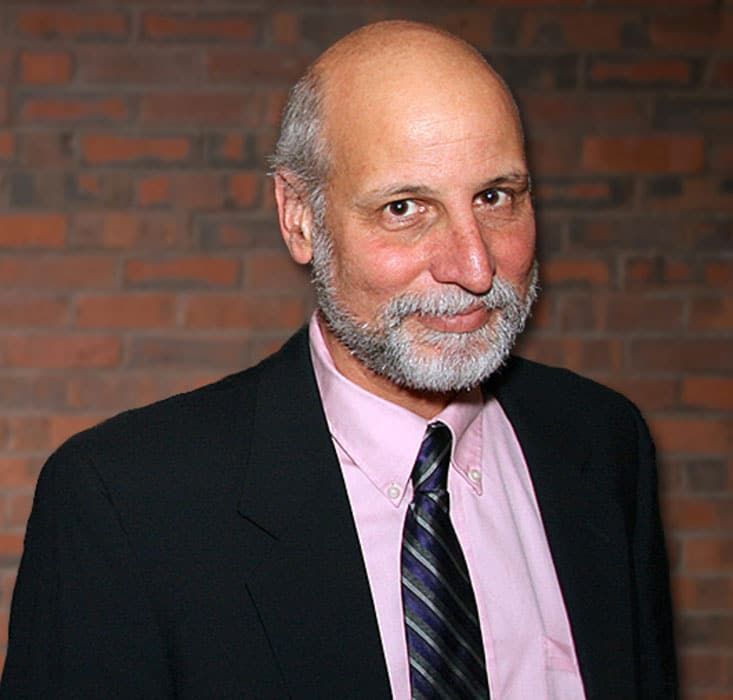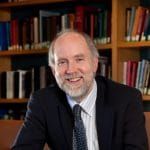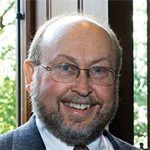Martin B. Malin, nuclear policy community-builder par excellence
By Matthew Bunn, Steven E. Miller | May 11, 2020
 Marty Malin
Marty Malin
Martin B. Malin, who passed away April 19 from cancer, was both a serious scholar of nuclear policy and one of the field’s great community-builders. His warm, insightful mentorship inspired a generation of nuclear scholars.
Marty—as he was known to all—grew up in San Diego, California, and went to college at the University of California at Santa Cruz (chosen, in substantial part, for the surfing). He received his master’s and PhD in political science from Columbia University, specializing in the Middle East, in which he retained a lifelong interest. At Columbia, he was editor-in-chief of the Journal of International Affairs. In New York, he met his wife Hilary, and they started their family.
They moved to the Boston area so Marty could take over directing the Program on Science and Global Security (including the long-standing and prominent Committee on International Security Studies) at the American Academy of Arts and Sciences. Marty became the indispensable lieutenant to the committee’s co-chairs, Carl Kaysen and John Steinbruner, and throughout his time at the American Academy was the key person in implementing the committee’s projects and shepherding its often influential products. While at the American Academy, he co-authored the pathbreaking War with Iraq—Costs, Consequences and Alternatives, and co-edited the American Academy Studies in Global Security book series (MIT Press).[1] But Marty’s interest in global justice ranged beyond security: while at the American Academy, he also helped lead a years-long project on steps to provide high-quality education to everyone, culminating in the book Educating All Children.[2]
He came to the Belfer Center for Science and International Affairs at the Harvard Kennedy School in 2007, and spent the next 13 years as Executive Director of the Managing the Atom (MTA) project. There, working with the two of us and others, he led all aspects of the effort, from raising funds to arranging pastries for our regular “Coffee and Catastrophe” discussions. He led the way to roughly doubling the size of the project. MTA was a central preoccupation for all three of us, so Marty was a regular presence in our lives over those 13 years. His intelligence, effectiveness, and conscientiousness made him a valuable colleague but what made him special—and a beloved friend—was his warmth, his kindness, his generosity, his congeniality, his sense of humor, and his selflessness.
At MTA, Marty co-authored numerous studies of security for nuclear weapons and materials, co-edited a book on preventing black-market nuclear trade, and wrote papers on topics ranging from a critical assessment of the use of force for nonproliferation goals to explorations of steps toward a Middle East free of nuclear weapons.[3] He organized countless workshops, seminars, and events – all exploring ideas for making the world a safer place.
But perhaps his greatest contribution was as a community-builder and mentor. He helped build a group at MTA that feels like a family, benefiting over 100 fellows that passed through the program during his tenure. With his warmth, dry wit, and constant willingness to help, whether it was an insightful review of a manuscript or advice on a job dilemma, he mentored countless fellows and staff members, helping them achieve their best. His door was always open, his office a lively place for advice, critique, and friendly chat; the flow into his office was constant, as Marty’s openness had built the expectation that he would always be there for MTA’s fellows and staff. He devoted far more energy to promoting others than to promoting himself; more than one of our former fellows have told us that they believe they owe their entire academic careers to Marty’s help. He was a true mensch.
While Marty was tireless in his work, he also enjoyed life to the fullest. He was a devoted husband and father and an aficionado of food, music, theater, and surfing (among other things). He was rarely at a loss for a sly quip about the world’s absurdities. For both of us, he was a true friend and a valued colleague. His passing leaves a hole in the nuclear community that will be hard to fill.
[1] Carl Kaysen, Steven E. Miller, Martin B. Malin, William D. Nordhaus, and John D. Steinbruner, War With Iraq: Costs, Consequences, and Alternatives (Cambridge, Mass.: American Academy of Arts and Sciences, 2002).
[2] Joel E. Cohen, David Elliot Bloom, and Martin B. Malin, Educating All Children: A Global Agenda (Cambridge, Mass: American Academy of Arts and Sciences, 2006).
[3] See, for example, Matthew Bunn, William H. Tobey, Martin B. Malin, and Nickolas Roth, Preventing Nuclear Terrorism: Continuous Improvement or Dangerous Decline? (Cambridge, Mass.: Project on Managing the Atom, Belfer Center for Science and International Affairs, Harvard Kennedy School, March 2016); Matthew Bunn, Martin B. Malin, William C. Potter, and Leonard S. Spector, eds., Preventing Black-Market Trade in Nuclear Technology (Cambridge, U.K.: Cambridge University Press, 2018); Paolo Foradori and Martin B. Malin, A WMD Free Zone in the Middle East: Creating the Conditions for Sustained Progress (Cambridge, Mass.: Project on Managing the Atom, Belfer Center for Science and International Affairs, Harvard Kennedy School, December 2012); and Martin B. Malin, “The Effectiveness and Legitimacy of Using Force to Prevent Nuclear Proliferation,” in Christopher Daase and Oliver Meier, eds., Arms Control in the 21st Century: Between Coercion and Cooperation (New York, NY: Routledge, 2012).
Together, we make the world safer.
The Bulletin elevates expert voices above the noise. But as an independent nonprofit organization, our operations depend on the support of readers like you. Help us continue to deliver quality journalism that holds leaders accountable. Your support of our work at any level is important. In return, we promise our coverage will be understandable, influential, vigilant, solution-oriented, and fair-minded. Together we can make a difference.
Topics: Nuclear Risk, Personal Essay















